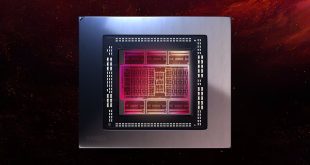While Nvidia has always been “about the PC” in some way or another, it put a lot of time and effort into the current, fading console generation as well, since it was reliving its war with ATI (now AMD) in the battle between the Xbox 360 and PS3. While its rival handled the graphical end of things in the 360, Nvidia had the PlayStation hardware covered. In the next-gen though, Nvidia is nowhere to be seen, it's AMD as far as the eye can see, so whataya know, now Nvidia thinks PCs are the greatest.
It's been talking the platform up at E3 too, with SVP of content and technology, Tony Tamasi, saying that Nvidia was delivering to PC gamers, a “better than console experience,” and that ultimately, the PC was the “most powerful gaming platform out there.”
Of course this was always the case and with the current generation of Nvidia equipped systems too. The reason that consoles keep pace with PCs visuals wise (at least at the start of the new generation, usually) is because of the singular hardware setup making it much easier for developers to build their games around it. They can tailor the game to the system, instead of having to support multiple graphical options and tens of different GPUs from different companies and generations of hardware.

“Most important.” Ahh, it's good to hear that after so many years.
According to the PCGamesN breakdown, Tomasi then described how because of this latest generation of consoles being so much more powerful, we'd see a big jump in graphical prowess in games. This is a pretty obvious statement though, as this happened with the last gen too. Gears of War and the Unreal Engine 3 altogether was a big jump in game aesthetics. Console generations tend to coincide with the creation of new graphics engines by companies, so there is always a big leap in how good a game looks.
Perhaps the most interesting part of Tomasi's talk however, comes from his mention of the cloud, where he suggests that his company is working on a “GRID,” where games could be rendered remotely and streamed to those with less than capable machines. This would be an interesting service, as it could allow for developers to begin targeting their games at higher spec hardware, knowing that everyone has the opportunity to do things locally or on Nvidia's remote hardware. Presumably Nvidia would charge some sort of subscription fee for this system – it could perhaps even do some sort of buy-in, whereby after you've spent a certain amount through cloud subscription, you could buy a certain graphics card for a reduced fee.
KitGuru Says: While this presentation was obviously designed to tell us where Nvidia's efforts lie and not really anything new about the potential of the platform (we all knew it was the top dog any way, we're the “master race,” remember?) I do like the fact that Nvidia is back on task. Perhaps efforts like the ridiculously powerful, single chip card: Titan, is a good indicator of that renewed effort. While barely any of us can afford (or need) that sort of hardware, the top of the line is usually where a GPU manufacturer is judged, even if the majority of its customer base is in the mid-range.
 KitGuru KitGuru.net – Tech News | Hardware News | Hardware Reviews | IOS | Mobile | Gaming | Graphics Cards
KitGuru KitGuru.net – Tech News | Hardware News | Hardware Reviews | IOS | Mobile | Gaming | Graphics Cards


